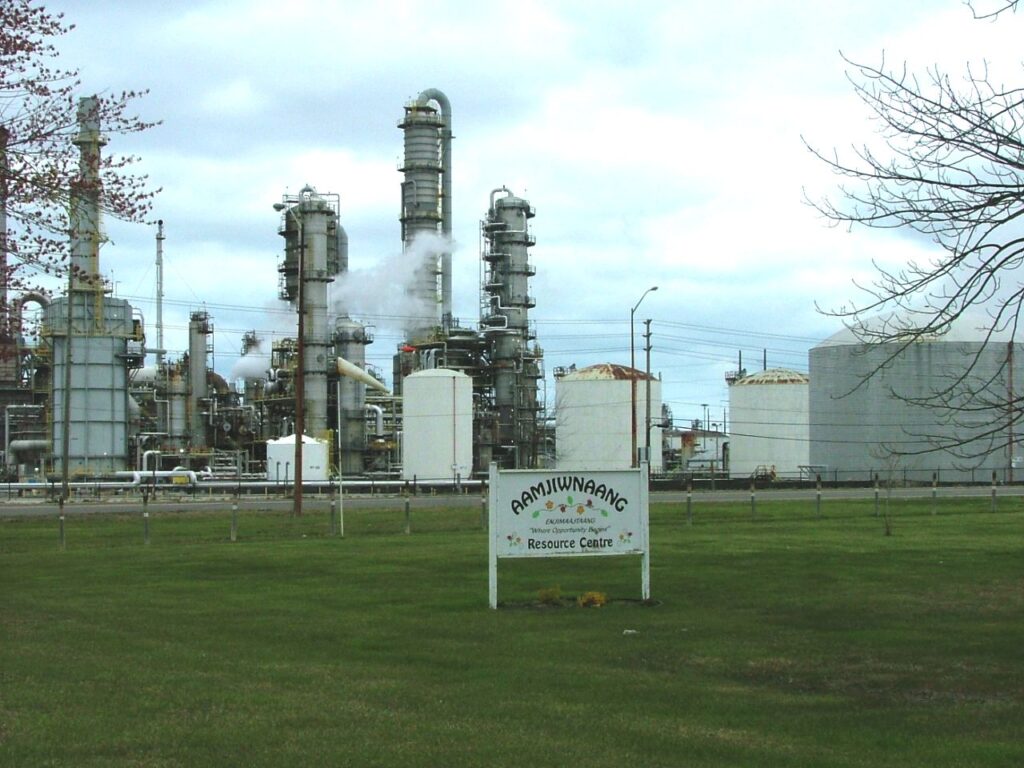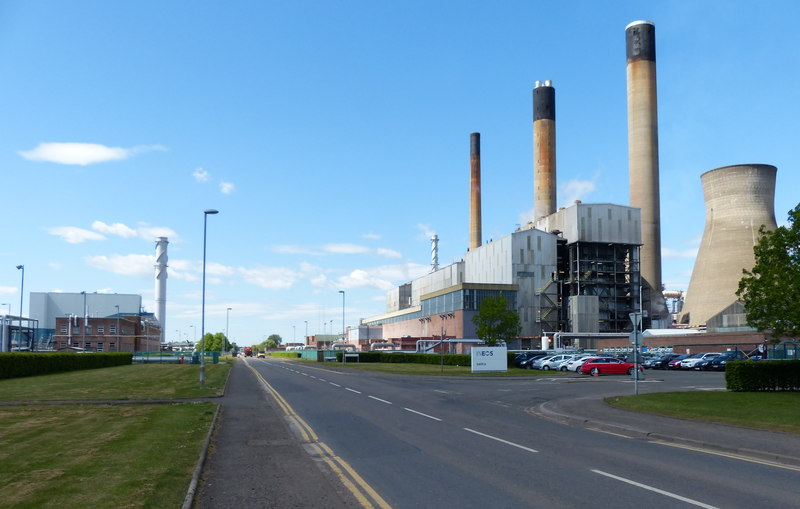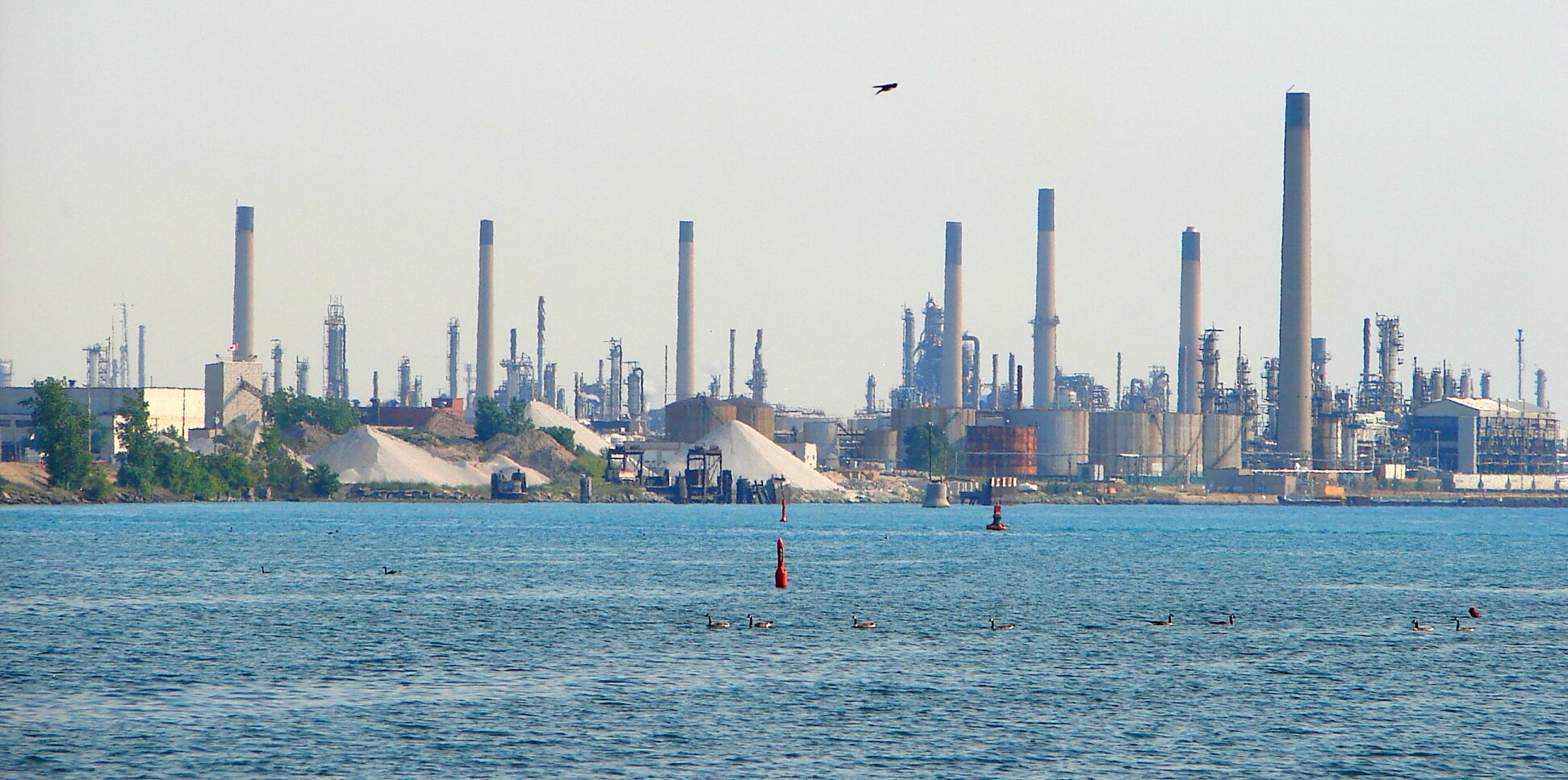Weeks after the Ineos Styrolution plant in Sarnia, Ontario, was temporarily closed because of a benzene leak, the company has announced it is permanently shutting down operations by June 2026. A significant number of people will lose their jobs, as the company continues not to comply with maximum pollution standards.
Located in Sarnia's Chemical Valley, Ineos is one of over 60 companies operating oil refineries and petrochemical facilities along the St. Clair River and Aamjiwnaang First Nation reserve. The area is home to 40% of Canada's chemical industry, employing 8,000 workers and contributing to 45,000 jobs in the region, according to a 2010 report.
On June 3, a new provincial regulation introduced under the province's Environmental Protection Act imposed stricter benzene limits and monitoring requirements on the Ineos Styrolution Canada Ltd. Sarnia facility.
The temporary closure order came at the end of April after several people from Aamjiwnaang First Nation became sick and were hospitalized. A state of emergency was declared several days later. Vital community services such as the health centre, daycare, and sports fields were shut down due to elevated levels of the toxic chemical.

Benzene is a byproduct from nearby facilities that process crude oil to gasoline. Ineos uses it to produce styrene for manufacturing auto parts, electronics and medical appliances. Benzene, however, is a known carcinogen, linked to leukemia and blood diseases. According to Environment and Climate Change Canada, exposure can affect the blood and bone marrow and is associated with reduced immune functions.
Ineos has publicly maintained that no elevated levels of benzene were detected by their internal monitoring systems, despite official proof that the poisoning of the Aamjiwnaang First Nation people was indeed linked.
Moreover, following the announcement of the closure, Ineos has stated that their decision was unrelated to the elevated benzene levels detected in the region. At first, Ineos voluntarily paused the operations. The provincial government revoked its operating permits until May 15, asking the company to submit a plan to reduce benzene emissions. After a request for an extension, Ineos decided to go in a different direction:
"The production site in Sarnia is currently shut down due to recent orders from regulatory authorities that forced us to declare force majeure. We are currently assessing what is required to restart the site—a process that could take approximately six months," Ineos Styrolution CEO Steve Harrington said in a public statement.
"The long-term prospects for the Sarnia site have worsened to the point that it is no longer an economically viable operating asset." In other words, the company says it can't afford not to poison the locals.
The effects of the closure on the community are still uncertain, according to Nick Dochstader, President of Sarnia District Labour Council. "So many things are symbiotic in this area, shared steam lines, one plant purchasing byproducts and materials from the other, etc. If one decides they are going to close, we don't really know what the impact on the area will be yet."
The closure means a reported 80 jobs lost at the plant, as well as another 500 lost contracting jobs, including a range of mechanical and chemical engineers, and industrial contractors.
"Any jobs lost is not good. It's counter to what we want to see. That's how communities thrive, with meaningful employment, not minimum wage, but these are well-paying jobs that are being lost," says Dochstader.
Ineos is a global company operating in North and South America, Asia, and Europe with a track record of health and environmental violations. In April 2023, a plant explosion in Texas injured workers who were then trapped in the facility as the doors were locked. Two workers are now suing Ineos for US$2 million for gross negligence.

In Grangemouth, Scotland, Ineos has breached health and safety regulations 34 times in the last four years, has been officially condemned as "poor" on pollution for three years in a row, and has seen more than 20 staff injured since the start of 2015.
While the Ineos plant will be closed in Sarnia by 2026, the remaining 60 refineries and petrochemical plants in the area continue to be under scrutiny for the similar health and environmental risks they pose. They, too, will have to comply with the newly imposed regulations of sealed containers for benzene and emission levels.
Ineos has announced it is appealing the benzene restrictions, with a preliminary meeting set with the Ontario Land Tribunal and Ineos Styrolutions on July 12. The company has put itself in an unscrupulous position of power for the hearing, with the threat of hundreds of lost jobs now made public.


